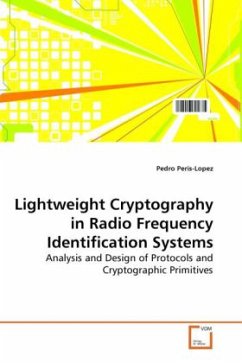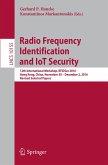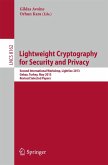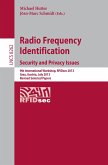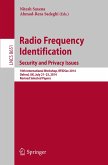This thesis examines the security issues of Radio Frequency Identification (RFID) technology. First, we analyze the security of the EPC Class-1 Generation-2 standard. Secondly, we cryptanalyze two new proposals, showing their unsuccessful attempt to increase the security level of the specification. Thirdly, we propose a new protocol resistant to passive attacks and conforming to low-cost RFID tag requirements. Fourthly, we propose a new protocol resistant to both passive and active attacks and suitable for moderate-cost RFID tags. Finally, because this protocol is based on the use of cryptographic primitives and standard cryptographic primitives are not supported, we address the design of lightweight cryptographic primitives. Specifically, we propose a lightweight hash function (Tav-128) and a lightweight Pseudo- Random Number Generator (LAMED and LAMED-EPC).
Bitte wählen Sie Ihr Anliegen aus.
Rechnungen
Retourenschein anfordern
Bestellstatus
Storno

